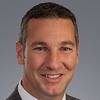Litigation Privilege, Attorney Immunity and Ethics: Defending Retaliatory Suits and Ethics Complaints

Welcome! Strafford is now BARBRI! The expert courses you know from the trusted global leader in legal education.
Course Details
- smart_display Format
On-Demand
- signal_cellular_alt Difficulty Level
- work Practice Area
Class Action and Other Litigation
- event Date
Thursday, February 23, 2023
- schedule Time
1:00 p.m. ET./10:00 a.m. PT
- timer Program Length
30 minutes
-
An excellent opportunity to earn Ethics CLE credits. Note: BARBRI cannot guarantee that this course will be approved for ethics credits in all states. To confirm, please contact our CLE department at pdservice@barbri.com.
-
Live Online
On Demand
This CLE webinar will discuss the boundaries of the litigation privilege and attorney immunity as defenses to retaliatory civil actions and ethical complaints filed against attorneys and party opponents. The panel will also survey evidentiary and procedural issues that arise in these cases. As part of their analysis, the panel will review what tactics are ethically out of bounds under Model Rule of Professional Responsibility 4.1 that deals with Truthfulness in Statements to Others.
Faculty

Mr. Lieser concentrates his practice on complex business and real estate litigation. He also serves as class action counsel and as a Florida Supreme Court Certified Circuit Civil Mediator. From 2017 to 2022, Mr. Lieser was named to the Florida Legal Elite roster. The select lawyers on this prestigious list represent fewer than 1.5% of active Florida Bar members. Mr. Lieser has also been selected as a Rising Star by Super Lawyers® magazine each year from 2013-2017, and a Super Lawyer in 2021 & 2022.

Ms. Reid began practicing law in the State of Florida in 2012. She is an active member of the Florida Bar, the American Bar Association, Orange County Bar Association, Lake County Bar Association and the Central Florida Association for Women Lawyers. Ms. Reid also serves as co-chair of the Attorneys' Liability Subcommittee of the American Bar Association's Professional Liability Litigation Committee.

Mr. Simeone is co-chair of the Issues and Appeals group at HWG LLP, and also works extensively with both the Communications and Legal Ethics and Malpractice groups. He has argued cases on a wide variety of issues before the United States Supreme Court, the D.C. Circuit, and other federal courts of appeals. Mr. Simeone has also argued before state courts of last resort, the U.S. Court of Claims, and the District of Columbia Board on Professional Responsibility.

Mr. Smith principally focuses on environmental and safety matters including defense of enforcement actions, cost recovery, compliance counseling, and supporting transactions. He also has experience in intellectual property matters and is registered before the U.S. Patent and Trademark Office as a patent attorney. He has argued before the US Court of Appeals for the Fifth Circuit, the Supreme Court of Texas, and several intermediate Texas appellate courts and has tried several jury and nonjury trials.
Description
When attorneys seek to gain an advantage by disclosing or threatening to disclose embarrassing secrets, illegal activity, deny facts known to be true, or otherwise cause fear to the opposing party, they are more frequently being sued for defamation, bad faith, intentional interference with contractual or beneficial relations, intentional infliction of emotional distress, fraud, or the like.
Sometimes these types of activities are absolutely privileged and sometimes they are only entitled to partial immunity. Much depends on when and where the statements are made and how state courts define “litigation.”
Regardless of civil liability, such conduct can lead to ethics complaints. Model Ruel 4.1 attempts to set some boundaries, but it offers no bright line rule. Landry’s Inc., et al. v. Animal Legal Defense Fund, et al (Tex., No. 19-0036, June 15, 2021), and Dorfman v. Smith, 342 Conn 582 (2022), are just two illustrations of the risks lawyers face if they utilize these tactics.
Listen as our experienced panel of litigators assists counsel in understanding the judicial proceedings privilege and attorney immunity and the limits of MR 4.1.
Outline
- Introduction and overview of recent cases; Model Rule 4.1
- Origins and history of the litigation privilege
- Nexus between communication and proceedings
- Qualified v. absolute privileges
- Exceptions, malice, and cross jurisdictional issues
- Applying privilege outside of litigation
- Pre-suit
- Post-suit
- Non-litigation situations
- Bar complaints and malpractice
Benefits
The panel will discuss these and other key issues:
- Does Model Rule 4.1 apply when an attorney is a party to litigation?
- To what degree are intentionality and good faith factors when considering questions of litigation privilege or attorney immunity?
- Do the privilege and immunity apply to transactions or only to judicial proceedings?
- What law applies?
Unlimited access to premium CLE courses:
- Annual access
- Available live and on-demand
- Best for attorneys and legal professionals
Unlimited access to premium CPE courses.:
- Annual access
- Available live and on-demand
- Best for CPAs and tax professionals
Unlimited access to premium CLE, CPE, Professional Skills and Practice-Ready courses.:
- Annual access
- Available live and on-demand
- Best for legal, accounting, and tax professionals
Unlimited access to Professional Skills and Practice-Ready courses:
- Annual access
- Available on-demand
- Best for new attorneys
Related Courses

Class Action Tolling Issues: Untangling Which Class Claims May Survive Following Dismissal or Denial of Class Certification
Thursday, September 4, 2025
1:00 p.m. ET./10:00 a.m. PT

Strategic Use of Amicus Briefs in Appellate Advocacy
Thursday, September 25, 2025
1:00 p.m. ET./10:00 a.m. PT
Recommended Resources
Explore the Advantages of Consistent Legal Language
- Learning & Development
- Business & Professional Skills
- Talent Development